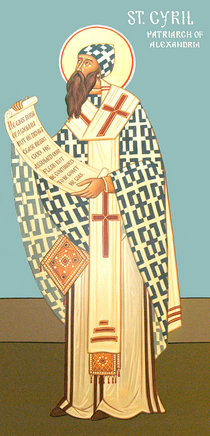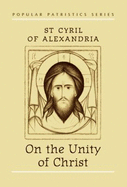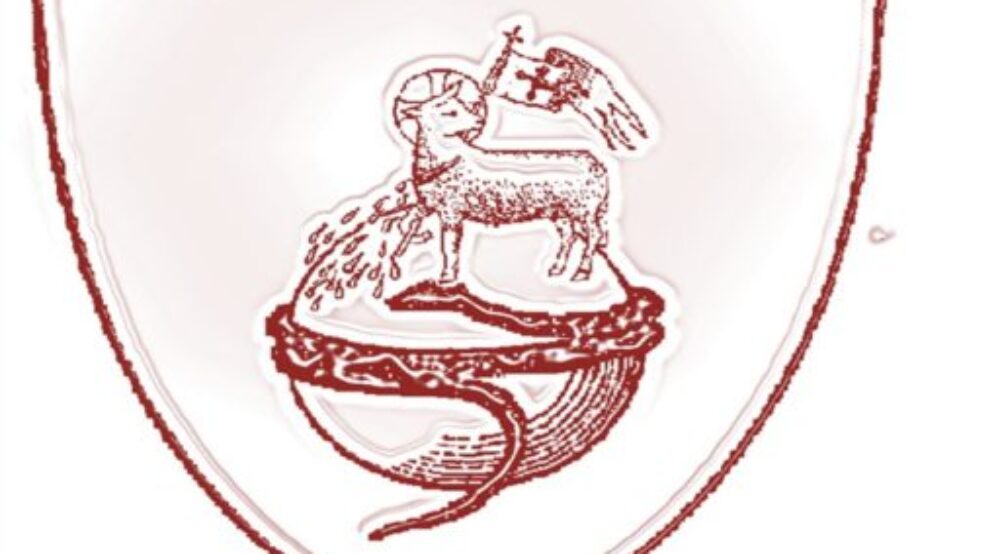JUNE 27
CYRIL OF ALEXANDRIA, PASTOR AND CONFESSOR
In 412, Cyril became the Bishop of Alexandria. Cyril followed in the footsteps the Great Alexandrian theologian Athanasius who was the defender of the doctrine of the Holy Blessed Trinity against Arius. In 428, a Syrian monk named Nestorius became the Bishop of Constantinople. Nestorius followed in the footsteps of the Antiochene theologians such as Diodore of Tarsus and Theodore of Mopsuestia. In response to Arianism, which denied the divinity of Christ, the Antiochene theologians began using the terminology of “Two Sons” in order to teach about Christ’s divinity and humanity. The Son of God was utilized to confess the divine nature of Christ. The Son of Man was utilized to confess the human nature of Christ. The language became sloppy and they began to talk about the Divine Logos as “associated with” or “conjoined to” the man Jesus of Nazareth. Nestorius began to push the need for speaking in this way. Furthermore, he refused to ascribe both the divine and the human attributes and characteristics to the one person of Christ. Nestorius ascribed the divine attributes only to the Son of God and the human attributes only to the Son of Man. Therefore, Nestorius refused to say that Mary was the Mother God and that God died upon the cross.
For Cyril of Alexandria, this refusal by Nestorius was seen as the rejection of the mystery of the incarnation. In the holy incarnation, there is not a mere “association” or “conjoining” of the two natures, but rather a “union” of the two natures in the one Christ. The Eternal Logos did not merely join with a man, but rather united with humanity. Cyril rejected the new Nestorian idea of a man alongside of the Divine Logos. Instead, Cyril confessed that the Divine Logos assumed the human nature, that is, He became flesh. The invisible one becomes visible in the incarnation. The immortal One takes upon mortality in order to die. The immaterial One is made flesh.
In the book On the Unity of Christ, Cyril addresses the issues caused by Nestorianism in the setting of a dialogue between two people. The new ideas and thoughts by Nestorius are addressed by comparing them to the sacred scriptures. Cyril declares that the God-inspired scriptures cry out against these manmade doctrines. As an “Ambassador of Truth,” the sacred scriptures show forth the falsehood of these two new teachings.
Cyril opens this dialogue by declaring Nestorianism to be the twin of Arianism. Arian teaching robbed the Only-begotten Word of His true divinity before the incarnation. Nestorian teaching robbed the Only-begotten Word of His true humanity after the incarnation. In this way, the Son of God comes along side of the man Jesus of Nazareth in almost the same way that God was with other saints of old. For Example, He was with Moses and Joshua to bring deliverance to the people of God. However, Cyril notes that none of the saints of old were given the special name Immanuel, that is, “God with us.” In Christ alone, the fullness of God dwells bodily.
St. Cyril notes that Immanu el does not merely mean that God is with us as He was with other saints of old. Instead, Immanuel means that God was made man. Immanuel is actually God Himself with humanity. For this reason, Mary did not give birth to the man Jesus of Nazareth like any other human birth. The Only-begotten Son of God was conceived by the Holy Spirit and born of the Virgin Mary. This was no ordinary birth brought about through the conception of a husband joining with a wife. Mary gave birth to God who became man. The Evangelist John writes, “And the Word became flesh and tabernacled among us, and we have seen his glory, glory as of the Only-begotten from the Father, full of grace and truth” (John 1:14).
el does not merely mean that God is with us as He was with other saints of old. Instead, Immanuel means that God was made man. Immanuel is actually God Himself with humanity. For this reason, Mary did not give birth to the man Jesus of Nazareth like any other human birth. The Only-begotten Son of God was conceived by the Holy Spirit and born of the Virgin Mary. This was no ordinary birth brought about through the conception of a husband joining with a wife. Mary gave birth to God who became man. The Evangelist John writes, “And the Word became flesh and tabernacled among us, and we have seen his glory, glory as of the Only-begotten from the Father, full of grace and truth” (John 1:14).
Now when St. Cyril articulates the mystery of the incarnation, he uses phrases such as “The Son of God became flesh” or “The Only-begotten Word became man.” In this way, Cyril wants his reader to understand that the Second person of the Blessed Holy Trinity appropriated a human body to Himself in such a union that it is His very own body. We call this the hypostatic union or the personal union. Likewise, to be clear that the Eternal Logos did not merely take the place of the rational human soul and dwell in the human body like a house, Cyril states that in the incarnation He was made like us being endowed with both a body and a rational soul being truly human. Thus, the Only-begotten Word became man without ceasing to be God.
Cyril of Alexandria explains the economy of salvation in this way. The poverty of our fallen humanity is a result of being enslaved to sin and death. In the holy incarnation, the Son of God became flesh in order to abolish the curse and punishment. He became flesh in order to overthrown the dominion of death and to put an end to the reign of sin. He emptied Himself. The Apostle Paul teaches that Christ “who, though he was in the form of God, did not count equality with God a thing to be grasped, but emptied himself, by taking the form of a servant, being born in the likeness of men” (Philippians 2:6–7). And again the Apostle Paul teaches, “For you know the grace of our Lord Jesus Christ, that though he was rich, yet for your sake he became poor, so that by his poverty you might become rich” (2 Corinthians 8:9). In Christ, we gain the freedom from sin and death becoming rich in righteousness and life.
Cyril goes on to describes the economy of salvation in this way: The Invisible One became visible in the flesh. The One who blesses all creation was accursed. The One who is the Righteous One was numbered with the transgressors. The One who is life came in the appearance of death. All of this the Son of God underwent in order to reconcile and restore our human nature. He came to redeem us.Yet in all of this, the Son of God remained what He is in the divine nature. Thanks to Cyril recognizing the weakness and danger of the new teachings of the Nestorians, we are able to clearly confess that Christ is the true and natural Son of God who became man so that we too might be able to call God our Father and remain free from the corruption of the human nature inherited from our first father Adam.
